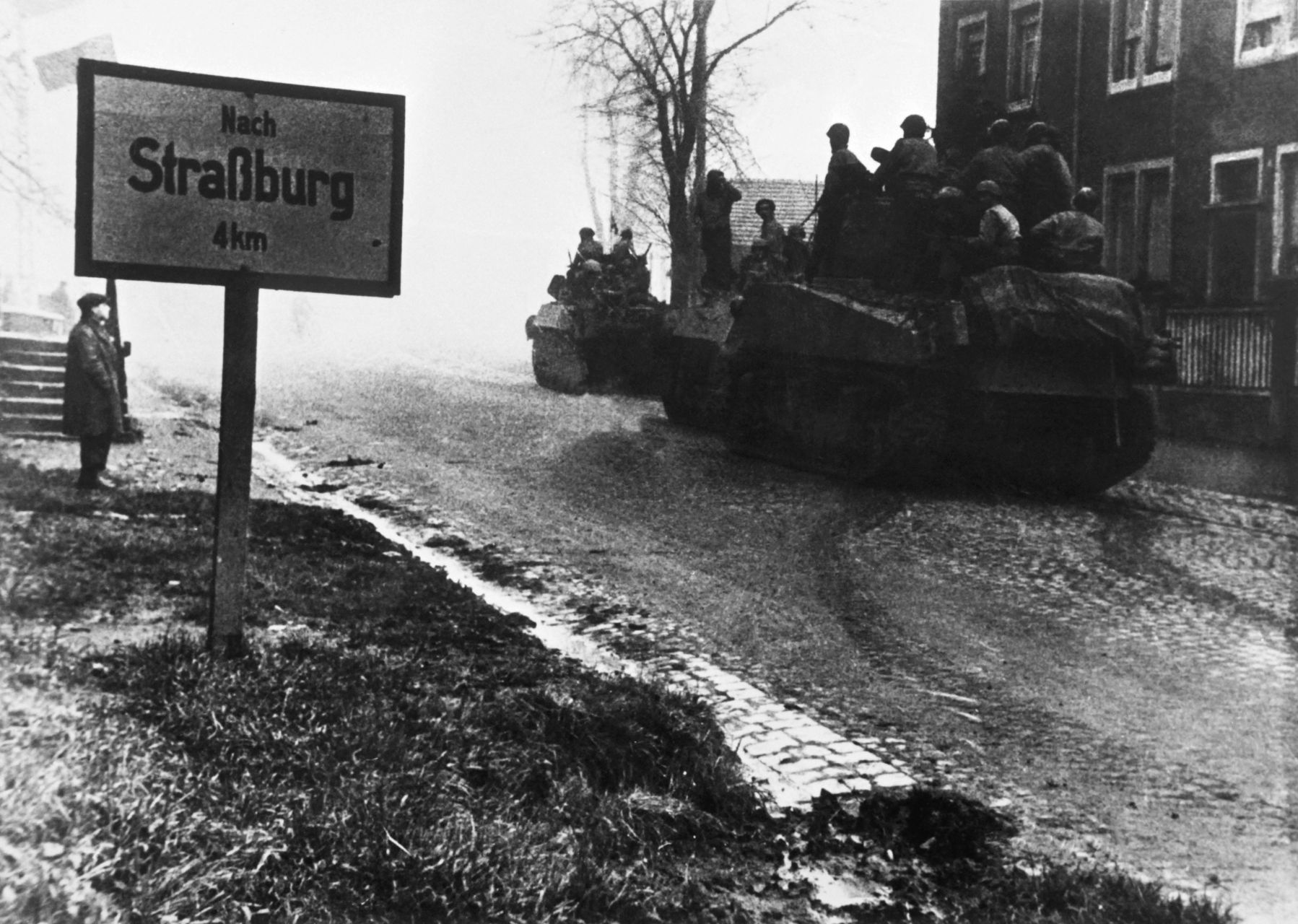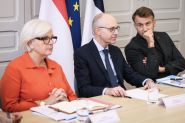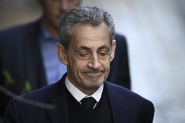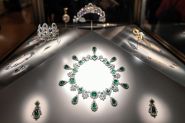- Home
- Middle East
- Macron to Commemorate 80th Anniversary of Liberation of Strasbourg

This picture taken in November 1944 near Strasbourg shows Allied soldiers driving on tanks towards the city during the Second World War. ©AFP
On Saturday, Emmanuel Macron will mark the 80th anniversary of Strasbourg's liberation from Nazi rule with tributes to the Alsatian resistance, forcibly conscripted soldiers, and historian Marc Bloch, who may be honored with a place in the Panthéon.
The President, continuing a long cycle of remembrance surrounding the 80th anniversary of France’s liberation and the end of World War II, is scheduled to attend a military ceremony in Place Broglie late in the morning, followed by a speech at the university.
Later, he will visit the former Nazi concentration camp of Natzweiler-Struthof, the only one built on French soil, located about 60 kilometers from Strasbourg in eastern France, during the time Alsace was effectively annexed by the Third Reich.
At Place Broglie, Macron will pay tribute to General Leclerc and the men of the Second Armored Division, who liberated Strasbourg on November 23, 1944. This fulfilled a vow made three years earlier during the Oath of Kufra (Libya) to fight until the French flag once again flew over the capital of Alsace.
As a symbolic gesture, the colors of France will once again be raised atop the spire of Strasbourg Cathedral during the ceremony.
"Against Our Will"
Macron will then deliver a speech at the Palais Universitaire of Strasbourg. "This will be an opportunity to discuss the resistance of the Alsatians, the liberation of the territory, and the always delicate subject of the forcibly conscripted Alsace-Moselle soldiers into the Wehrmacht," the French presidency said.
Over 130,000 Alsatians and Mosellans, considered German after the annexation of these territories, were compelled to join the German army. Of them, 12,000 never returned, a tragedy that remains painful in the region 80 years after the war.
For a long time, the "Malgré-nous" (literally "Against Our Will"), some of whom were linked to one of the worst civilian massacres committed by the Nazis in Western Europe at Oradour-sur-Glane in 1944, remained a relatively taboo topic.
"After the war, the focus was on valorizing heroic and resistant memories — everything that could rebuild France’s unity. In this context, the story of the 'Malgré-nous' was an uncomfortable fit; it wasn’t glorious and didn’t contribute to constructing a cohesive national memory," explains historian Christophe Woehrle.
"Now, 80 years later, it’s time to use words and actions, to move beyond feelings of shame and non-recognition," says Strasbourg Mayor Jeanne Barseghian, who has called on Macron to commit to compensating the orphans of the "Malgré-nous."
Between France and Germany
According to several sources, Macron may also announce the inclusion of historian and resistance fighter Marc Bloch in the Panthéon. At the end of his speech, he will award the Legion of Honor to Daniel Bloch, Marc Bloch’s son.
The Panthéon in Paris honors figures who have significantly shaped French history.
Marc Bloch, a professor of medieval history at the University of Strasbourg from 1919 to 1936, revolutionized historical research by incorporating sociology, geography, psychology, and economics.
In 1929, he co-founded with Lucien Febvre the journal Annales d’histoire économique et sociale, which gained global academic recognition.
A captain and recipient of the Croix de Guerre in World War I, Bloch was remobilized in 1939 and joined the resistance in 1942/43. He was arrested in Lyon on March 8, 1944, imprisoned, and tortured at Montluc prison before being executed by firing squad on June 16, along with 29 comrades.
At Struthof, Macron will rekindle the flame at the Memorial to the Heroes and Martyrs of Deportation after a "sober and solemn visit" to the camp where 17,000 people perished.
The President will also visit the Alsace-Moselle Memorial Museum in Schirmeck, which recounts the history of the region’s inhabitants, caught between France and Germany during decades of conflict from 1870 to 1945. The museum also pays tribute to the 36,000 Alsatians and Mosellans who died during the war.
With Valérie Leroux and Pauline Froissart / AFP
Read more



Comments